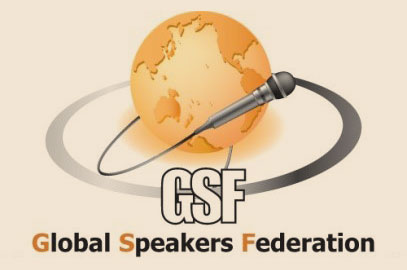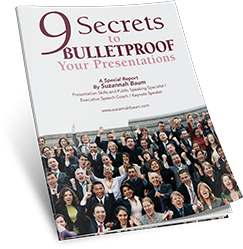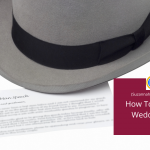3 Top Offenders That Take Away From Your Delivery Power and Distract Your Audience
We’ve all seen the robotic speakers who may have great content but we can’t get past their nervous body language or frozen delivery style. As a speaker, how we say what we say is crucial to our success in moving our audience. So how do we, as speakers, make sure that when we take that all-important spot in front of the room, we can stay in control of ourselves – and of the audience’s attention?
I warn you, what I’m about to say is NOT rocket science. As you read this list, you will likely be thinking – “Well DUH, Suzannah – I already knew this.” And yet, it’s shocking how often I see these things being done in front of an audience, by people who DO already know…and a lot of the time, it’s not even their fault! The fact is, we don’t always know every single thing we do when we’re in that high-stress position in front of an audience. One of my students once spent a full three minutes of her speech scratching her shoulder – loudly, awkwardly, and consistently. For THREE full minutes. Three excruciatingly long minutes, when you consider that the audience – any audience – is incapable of paying attention to even the most brilliant content if the speaker is doing something awkward or unnatural. And might I add, when she finished her speech and got her feedback, she was shocked – SHOCKED – to hear that she had been scratching her own shoulder for that long.
There are really a lot of things I can cover here, but I’ll hit the 3 top offenders that are totally under YOUR control, that take away from your speaking power and distract your audience:
Top Offender #1: YOUR BODY. It’s a wonderland. But wow, it’s distracting!
Swaying side to side. Crossing your legs, one in front of the other, and then back again. Bad posture. Dancing around, moving aimlessly, and pacing back and forth. Women flipping their hair or playing with your rings, and men playing with change or keys in their pockets. All of these movements can distract your audience from listening to your message.
The fix: Stand up straight. Move purposefully. Take everything out of your pockets. Ask someone in the audience to provide honest feedback after your presentation. Or better yet, videotape yourself and be your own coach. Be aware of what your body is doing, and how it might be sabotaging your audience’s attention.
- Top Offender #2: YOUR MOUTH. Um, like, you know…your mouth?
Watch those endless filler words. No one will fault you for a few of them in your talk, because hey, we’re all human. But once they start showing up in a few times per minute, you’ve got to start paying attention. Too many filler words are amateurish, and you don’t want to waste an opportunity in front of an important audience by filling it with these ‘crutch words’ instead of your well-thought out content. And watch your speaking speed. If your audience can’t understand what you’re saying because you talk too fast, you may lose them forever.
The fix: Make friends with the pause. Stop. Breathe. Take a sip of water. Resist the urge to fill every silence with a word or noise. Silence is not a bad thing. You need to stop for your own sake, and for your audience’s sake – so that you can allow them to really take in and digest what you’re saying.
- Top Offender #3: YOUR HEART. Are you “speaking from the heart?”Yes?Aw, that’s sweet. Now cut it out!
“Speaking from the heart” is one of the great myths of authentic public speaking. It is a surefire way to take away from your speaking power. So often I sit through presentations where I’m told that “I didn’t want to prepare, because I want to speak from the heart.” And then the speech goes on and on and on, and pointless stories get told, and they go off on tangents, and every now and then they realize that they just forgot where they were going with one particular part so they have to backtrack, and it just turns into a huge mess.
Don’t get me wrong, I think that outstanding speeches come from a place deep inside, based on vast experience, knowledge, and authenticity. But the thing is, you MUST know where you’re going in your speech, and what you’re delivering to the audience. It’s not about you and your heart, it’s about what they need to hear. You’re serving and respecting your audience when you plan out the journey that you’re taking them on. And without that structure, will you be making that clear?
The fix: PRACTICE your talk, so that you can deliver it smoothly and feel more confident in front of your audience. Practice will NOT make you look overly rehearsed or like a robot, it will make you feel more comfortable with your content, and help when you deal with the butterflies flying around your stomach. And seriously, why can’t you just put what’s in your heart on paper, in advance, so that when you’re in that important position in front of an audience, you’re focused, ready and know EXACTLY where you – and your heart – are going in the presentation?
As you can see, it’s not rocket science. But a little reminder here and there never hurts. Because when you’re standing in front of your super-awesome audience, those amazing people who are giving up their time to listen to what you have to say, sometimes these top offenders can creep into your presentation. So take control of your body. Get feedback on your presentation style. Learn to love the pause. Practice extensively. Your audience will thank you for it.
(This article is also featured on the Huffington Post).

 Top Offender #1: YOUR BODY. It’s a wonderland. But wow, it’s distracting!
Top Offender #1: YOUR BODY. It’s a wonderland. But wow, it’s distracting!




